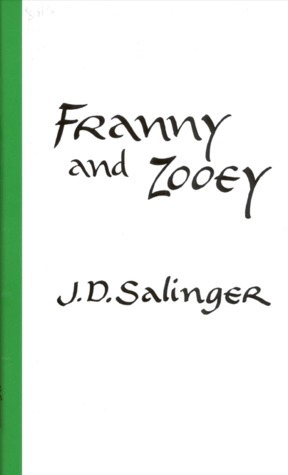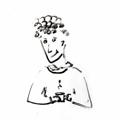ralentina reviewed Franny and Zooey by J. D. Salinger
'I'm sick of not having the courage to be an absolute nobody.'
4 stars
An unusual book [starting from the format: a short story (Franny) and a novella (Zooey)] by one of my problematic favourites. It revolves around two siblings, with sequential but not completely consistent plot lines. Franny is a literature college student undergoing a crisis about her studies and, indeed, the purpose of life. Zooey is her older brother, who tries to help her with a mix of sarcasm and sweetness, even if he is also himself experiencing similar doubts. They share a relatively complicated childhood, marked the death of two brothers and a home environment oozing intelligence and intellectual engagement, in ways that have perhaps been damaging.
What I found interesting about this odd mix is that both characters move in a space that is halfway between self-conscious, immature pretentiousness and mental illness. Is their crisis of faith (in both culture and spirituality) the typical transformation that many middle-class, highly-educated kids …
An unusual book [starting from the format: a short story (Franny) and a novella (Zooey)] by one of my problematic favourites. It revolves around two siblings, with sequential but not completely consistent plot lines. Franny is a literature college student undergoing a crisis about her studies and, indeed, the purpose of life. Zooey is her older brother, who tries to help her with a mix of sarcasm and sweetness, even if he is also himself experiencing similar doubts. They share a relatively complicated childhood, marked the death of two brothers and a home environment oozing intelligence and intellectual engagement, in ways that have perhaps been damaging.
What I found interesting about this odd mix is that both characters move in a space that is halfway between self-conscious, immature pretentiousness and mental illness. Is their crisis of faith (in both culture and spirituality) the typical transformation that many middle-class, highly-educated kids go through, or is it an actual suicidal tendency, as their family history suggests? Did Salinger even know?
The task of interpretation is made more complex by the narrative framework through which Zooey is told. Although it reads very much like the script for a play, we know the narrator to be Buddy, Franny and Zooey's older brother. Buddy teaches Advanced Writing in a rural college and one of the first things we're told (by Buddy himself) is that his letters are 'overwritten, teaching, repetitious, opinionated, remonstrative condescending, embarassing - and filled to a surfeit with affection'. So when occasionally the book displays the same tendencies, should be attribute them to Buddy or Salinger? Similarly, some parts of the dialogue are exhausting to read, circling around the same points over and over. But isn't that exactly what it feels like to trying to talk someone out of depression?

